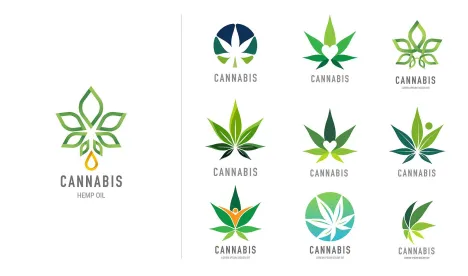There is a scene in the fantastic film Wayne’s World (cult classic or blockbuster, I don’t know; I just write blogs about cannabis) where Wayne and Garth are playing street hockey and whenever a car drives down the street they both yell “Game off!” and move the goal off the road. Once the car has passed, they yell “Game on!” The back-and-forth occurs a few different times while the characters discuss something trivial. Having written it out it doesn’t really seem like a great scene. It does, nonetheless, remind me of what is happening with the Alabama Medical Cannabis Commission’s start-and-stop efforts to issue medical cannabis licenses.
A Montgomery County Circuit Court has now issued a third temporary restraining order against the commission in the last five months. And while Wayne’s World is a very funny movie, there is nothing funny about the time and resources being spent due to the commission’s inability to issue licenses.
Prior Litigation and Restraining Orders Issued Against the Commission
Prior to last week, the commission was enjoined on two prior occasions since April. In the first instance, certain applicants sought an order requiring the commission to accept their applications for consideration even though the applications were not, according to the commission, properly submitted by the December 30, 2022, deadline. The court sided with two of the applicants and required the commission to consider the submissions of the two applicants.
Then, following the commission’s award of 21 licenses in June, the commission halted its process (citing then-unexplained inconsistencies in the grading process) and the same court followed by issuing an order – essentially coexistent with the commission’s decision – restraining the commission from issuing licenses until the errors in the grading process had been corrected.
The August Award of Medical Cannabis Licenses
On August 10, the commission held a meeting during which it spent the majority of time in executive session (outside of the view of the public). To be sure, executive sessions are allowed in certain circumstances under the Open Meetings Act. It appeared from comments from the commission’s counsel prior to the executive session that counsel believed the agenda for the executive session fell within the Open Meetings Act. Specifically, counsel stated at the time that the purpose of the executive session was to discuss (1) pending legal matters and (2) the general reputation and character, physical condition, and professional competence of individuals who were associated with certain applications. Those two topics – if they were all the commission discussed in executive session – likely would not have been problematic.
Two other things happened in executive session. First, counsel for the commission stated prior to the executive session that commissioners would share information about certain applications that the commissioners had learned as part of their preparation for the meeting. Second, the commissioners submitted what counsel called “nominations” during the executive session and then submitted those “nominations” to commission staff once the commission returned to the public portion of the meeting. Each commissioner was able to nominate a number of applicants corresponding with the number of licenses available in each license category.
With the commission back in public, they voted up or down on applications (without further discussion) based on the number of nominations received, in descending order. When the maximum number of licenses had been awarded for each category, the commission moved onto the next category.
The Current Restraining Order Against the Commission
Disappointed applicants immediately returned to court to seek to enjoin the commission from issuing the license based on alleged violations of the Open Meetings Act. Specifically, challengers alleged that the commission impermissibly (1) deliberated in executive session when members discussed information that they had learned in the days leading up to the meeting and (2) took a secret vote. On the latter point, the argument is that the “nominations” were effectively votes, particularly when the public, up-or-down votes were based on the number of nominations received.
During the hearing, as it became evident that the court was inclined to rule in favor of the challenges, counsel for the commission – clearly exasperated by the repeated challenges to the commission’s practices – stated:
Well, I’ll tell you what we’re planning to do, Judge, if this has to go back one more time. We are done protecting anyone’s reputation of character.
We don’t have to go into executive session, and we won’t. We will put forth everyone’s dirty laundry and everyone will hear about it.
Seemingly surprised by the outburst, the court cautioned that “I don’t know if it needs to be done in a vindictive way.” Counsel for the commission responded: “That’s just what’s going to happen.”
Ultimately the court concluded that the applicants had established a prima facie case that the commission had violated the Open Meetings Act and stated that it would enter a temporary restraining order preventing the issuance of licenses while the court conducted an evidentiary hearing on the alleged violations of the Open Meetings Act. That hearing is scheduled to begin on August 28. The next commission hearing is scheduled to occur on August 31.
It’s Time to Get This Done
Let me be clear. I am not making an argument here for or against any applicant obtaining a medical cannabis license. The point here is that the commission needs to complete its statutory mandate and issue medical cannabis licenses. I believe that the commission is trying to do so and, whatever I believe about the mechanisms put in place by the commission to accomplish that mandate, I do not believe that the commission’s actions are driven by any purposeful desire to circumvent the awarding of licenses to deserving applicants. That said, enough is enough. Whenever the commission meets again, it needs to have a process in place that comports with Alabama law and withstands judicial review.




 />i
/>i

